CVHS staff and students voice opinions on the overruling of Roe v. Wade
Photo from Eric Gay (AP Photo)
Women and Men rally up to protest the possibility of the overturning of Roe v. Wade in Austin, Texas.
Roe v. Wade is a landmark decision that protects a woman’s bodily autonomy right to an abortion. Initially a case between Jane Roe and Henry Wade, it was recently re-targeted by the Supreme Court.
On May 2nd, 2022, Supreme Court Justice Samuel Alito’s initial draft in favor of overruling the case was leaked. This overruling will allow states to ban safe abortions.
“Women won’t be able to access their medical care. Lots of women who can’t afford abortions, for example, if I needed an abortion, my parents could get me out of state to go,” said CVHS student Noah Fry. “But a lot of women like around the US who do not have that option and will be forced to undergo the trauma of either having a pregnancy that they don’t want or doing an extremely dangerous abortion”
In 1970, Jane Roe challenged a Texas law that prohibited abortion unless it was on a doctor’s order. On January 22nd, 1973, the Supreme Court voted 7-2 in favor of Roe, allowing women in the US to have the right to choose whether or not to have an abortion without government restrictions.
“Roe v. Wade provides a safe way for women to get abortions, especially if they have medical problems or they don’t have financial money. It should be a woman’s choice whether she wants to get an abortion or not,” said CVHS student Kassandra Chavez. “There are some women who don’t want an abortion, but that’s their choice. They still have that choice.”
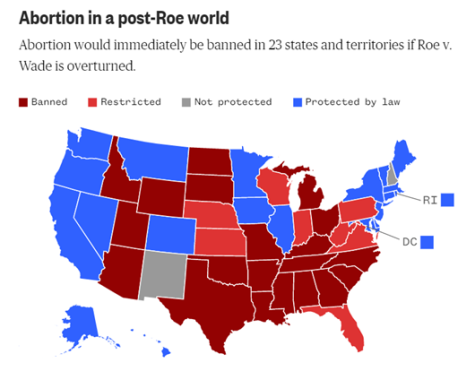
In the case that Roe v. Wade gets overturned, 23 states, including Texas, have trigger laws that will automatically ban abortion in the first and second trimesters. The lower-income women will be most affected by this due to the lack of resources.
“It inadvertently targets women in lower social classes because they can’t afford to leave [for an abortion]. It will have a very detrimental effect on women because they won’t be able to access their medical care – and that’s just completely unacceptable,” said Fry.
In these aforementioned states, abortion will become illegal, but this does not mean it will not stop them from happening. Before Roe v. Wade passed, in the years 1950-1960, there were up to 1.2 million illegal abortions done each year. 1 in 10 low-income women have tried to have an illegal abortion, and 8 in 10 have attempted a self-induced procedure to end a pregnancy.
“Women would still be getting abortions, but they won’t do it the safe way which means they could die or it could cause serious health problems. When they are ready or in a condition to have a baby they can find themselves infertile,” said CVHS student Addison Claridge.
On May 7th, 2022, about 4,000 to 5,000 pro-choice advocates rallied up in Discovery Green to protest the leaked draft and the possibility of Roe v. Wade getting overturned.
“America has a far more diverse religious makeup than it did even when the country was first beginning. It’s very hard to convince the populace that one person’s religious ideology should get to decide the way that you control your body,” said CVHS teacher Davis-Owen. “The law needs to change to meet the needs of its citizens. Birth control and abortion are not new things in history. In ancient Greece, they had reproductive control measures.”
Advocates for the anti-abortion movement argue that women can give a child up for adoption or place them in foster care, instead of getting an abortion.
“It may stress an already overwhelmed system with regards to adoption. I think there’s a common belief that well, those babies can be adopted, but there are currently over 3000 children waiting for adoption in Texas alone right now. Overturning Roe takes away a woman’s right to decide whether she can provide the best possible options for herself and any potential children,” said AP World History teacher Jane Schulz
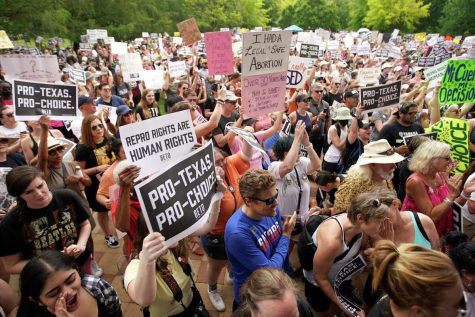
In the Roe v. Wade case, Roe argued that the First, Fourth, Fifth, Ninth, and Fourteenth Amendments protect a women’s right to an abortion because it is part of their right to privacy.
“I think the third thing I’m most worried about is that Alito is attacking something called the unenumerated [non-explicit] rights. Roe v. Wade was decided based on an implied right to privacy found in fourth amendment protections against unlawful search and seizure,” said CVHS teacher Charlotte Haney. “What could be more private than your body? Roe v Wade was based on this unenumerated right, this right to privacy, and many other rulings happened because of Roe v. Wade based on this right to privacy. But what Samuel Alito is doing in the draft opinion is he’s building an argument for getting rid of unenumerated rights. It’s a much bigger deal than abortion.”
The possible overruling of Roe v. Wade will threaten the unenumerated rights under rules of privacy that were used in overturned laws restricting interracial marriage and gay marriage.
“I worry that if Roe v Wade can be overturned by the Supreme Court then it could be possible for the court to overturn other settled cases, such as Obergefell v. Hodges, which mandates marriage equality,” said Schulz. “Turning decisions back to the states definitely has the potential to trickle down to other cases regarding civil rights.”
Roe v. Wade’s possible overruling could also threaten marriage equality and birth control.
“If a woman does not have control over whether she carries a child to term or not, what does that mean then later for access to contraception? If there’s a ban on this, then what other instruments of controlling reproduction are affected by it? Does that mean, access to contraception will be more difficult to get, or will there be price gouging? Or will it only be sold in certain states? Will people have the means to travel to get it?” said Schulz.
In the leaked draft, Supreme Court Justice Alito bases his argument on the “originalist” foundations of the Constitution, arguing that the Court needs to uphold legal traditions as the Constitution was initially intended for. He does this by citing 17th and 18th-century examples to justify the reasoning for the removal of Roe v. Wade, including “English cases dating all the way back to the 13th century corroborate the threatises’ statements that abortion was a crime… In 1732, for example, Eleanor Beare was convicted of “destroying the Foetus in the Womb” of another woman and “there-by causing her to miscarry.” For that crime and another “misdemeanor” Beare was sentenced to two days in the pillory and three years’ imprisonment.”
“We’re heading backwards. We’re allowing the government, mostly men, to have an opinion about our bodies, our choice. It would be devastating as a woman to see that happen. We always talked about separation of church and state but it seems like it’s in there forever and always,” said CVHS Wraparound specialist Karla Sanchez.
Your donation will support the student journalists of Carnegie Vanguard High School. Your contribution will allow us to cover our annual website hosting costs and fund field trips, competition fees, and equipment. We appreciate your support!

Judith Carrizales is a junior at CVHS. She participated as a member of the Film, Riot, and WISE clubs. Her favorite subjects are Journalism (of course!)...


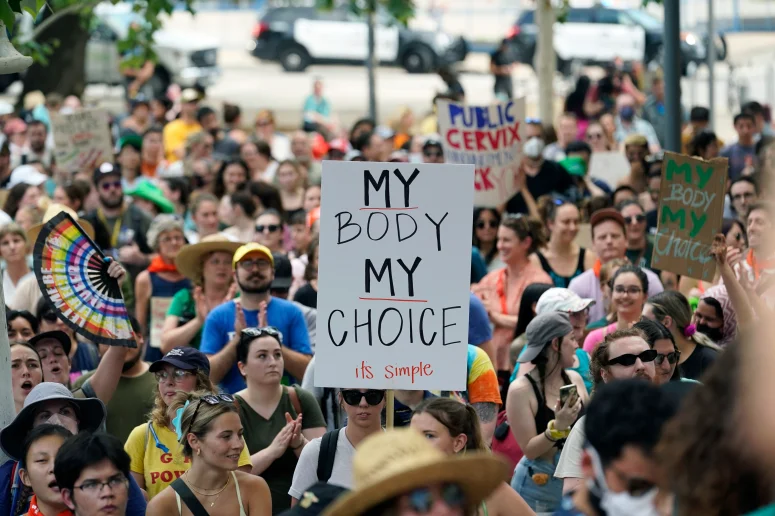
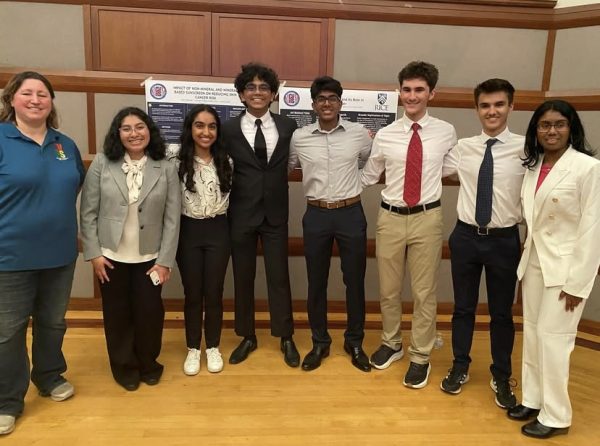

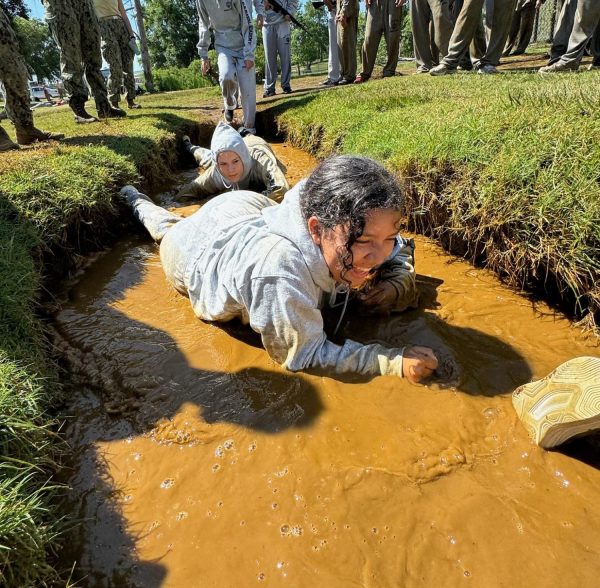
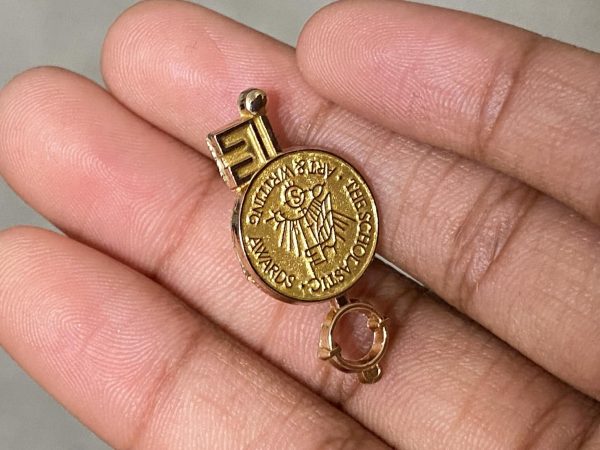
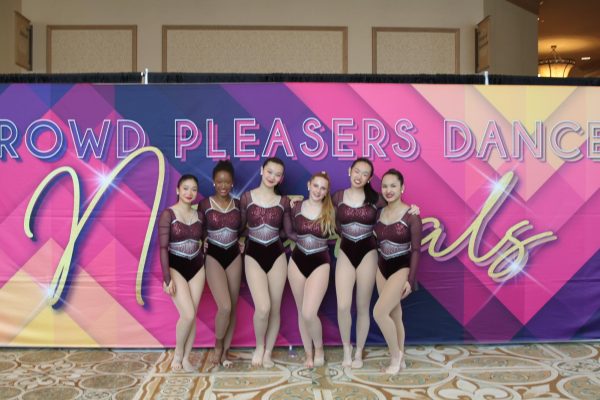
Nadia Talanker • May 23, 2022 at 2:24 pm
I love the way this was written – you’re clearly passionate about this topic and that shows in the thoroughness of your reporting. Amazing job, genuinely a great article on this situation.
Abigail Nunez • May 23, 2022 at 2:19 pm
I really like how research is cleverly used in this story to back up all the statements made. I think it is unfair that they are trying to take these rights out of women’s hands , when they should be able to decide what to do with their bodies.